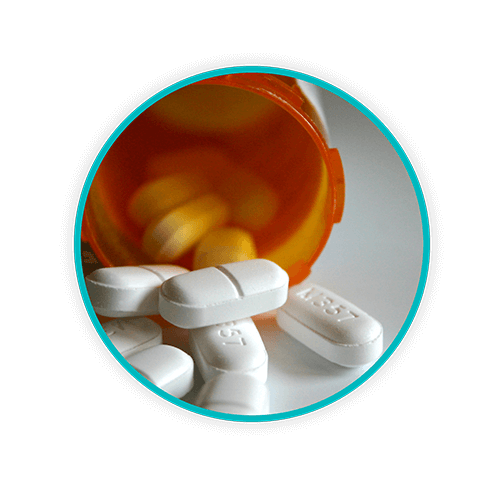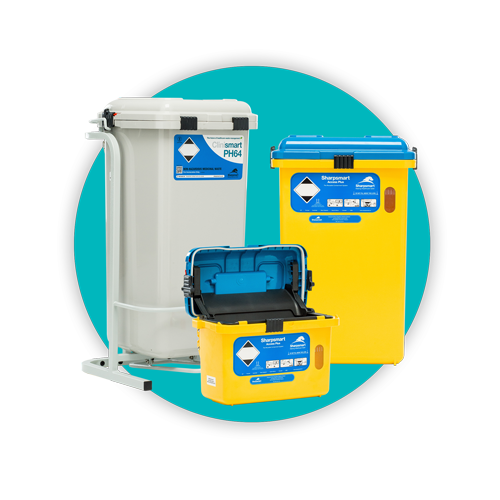Pharmaceutical Waste Management Guidelines for Liverpool

Liverpool is a city and metropolitan borough along the eastern shoreline of the Mersey estuary, with a history that dates back to the early 13th century. Among its claim to fame includes not only the registry port for famous ocean liners like the Lusitania, the Titanic, and the Queen Mary, but as a city with a rich wealth of historic gardens, parks, museums, and points of interest.
With a population that reaches nearly 500,000 inhabitants, it is also rich in healthcare sites including, pharmacies, hospitals, care homes, and outpatient treatment centres. Such facilities deal with pharmaceuticals, and as such, pharmaceutical waste. Pharmaceutical waste management guidelines are vital to not only community pharmacies, but to any healthcare provider that deals with pharmaceutical waste. Here’s what you need to know for specific compliance in Liverpool.
TOPICS WE WILL COVER
2 / Responsibilities of pharmacies
3 / Classifying pharmaceutical waste in Liverpool City
4 / A word about controlled drugs
5 / Storage of pharmaceutical waste
6 / Regarding transportation of pharmaceutical waste
7 / Sharpsmart boosts compliance
About duty of care
In regard to pharmaceutical waste management in Liverpool City, duty of care implies statutory responsibilities and duties of not only organisations, but individuals, such as those who manage or maintain administrative duties for healthcare facilities of all kinds.
Requirements regarding such a duty of care in England can be found under Section 34 of the Environmental Protection Act. Among the primary responsibilities of pharmaceutical waste or other healthcare waste producers is to ensure that waste is handled, stored, and transferred, treated or disposed of properly.
Failure to follow regulations in regard to the management of pharmaceutical waste can incur legal actions, fines, and possible penalties.
Pharmacies in Liverpool, as well as throughout England, are required to follow the guidelines outlines by the Government, the Department of Health, and the National Health Service (NHS) Pharmaceutical Quality Assurance Committee when it comes to waste segregation, labelling, and classification as well as waste transfer processes, documentation and waste audits to ensure duty of care.
In addition to the above guidelines, pharmacies have a statutory duty of care applicable to everyone within the pharmaceutical waste management chain. This responsibility also ensures that pharmacies or any healthcare provider dealing with pharmaceuticals are managing and taking measures to ensure that pharmaceutical waste processes are followed.
Responsibilities of pharmacies
The Health Technical Memorandum 07-01: Safe Management of Healthcare Waste outlines the responsibilities of pharmacies as well as other producers of pharmaceutical waste. Responsibilities include but are not limited to:
- Ensuring that pharmaceutical waste is correctly segregated, labelled and packaged for transportation off-site
- Ensuring that pharmaceutical waste is safely stored and secured to make it inaccessible to public access
- Appropriately completing documentation through every step of the pharmaceutical waste management process, especially in regard to transferring such wastes to authorised personnel and prior to transportation to authorised sites
- Maintain accurate and up-to-date records
-
Providing adequate training to all staff regarding pharmaceutical waste handling and procedures
Pharmaceutical waste is defined and identified based on its classification. Determining such classification is a primary aspect of safe and compliant pharmaceutical waste management and disposal processes.
Classifying pharmaceutical waste in Liverpool
In Liverpool , as throughout England, classification of pharmaceutical waste is achieved by either determining its chemical properties or its source. Some pharmaceuticals are defined by whether or not they have pharmacuetically active medicines which may be hazardous or non-hazaroud depending upon its properties. Cytotoxic and cytostatic medicinal waste would be hazardous clinical waste. Other medicines are often defined as non-hazardous clinical waste, for example saline.
It’s important for any entity handling pharmaceuticals to be aware that while a medicine may not be classified as a hazardous waste because it is neither cytotoxic nor cytostatic in nature, it may however contain a number of other hazardous properties that may require segregating from non-hazardous wastes. This ensures that chemicals are not stored in the same location where they might be incompatible with each other.
As an example, cytotoxic and cytostatic wastes commonly used in cancer treatment therapies are segregated separately. However, other pharmaceuticals that might commonly be found in a community pharmacy may be toxic, flammable, reactive, or corrosive in nature. Storing such pharmaceuticals in close proximity to one another may increase the risk of leaking or corrosion, potentially releasing toxic substances into the air, combusting, or other dangerous scenarios.
A word about controlled drugs
Any facility, from a hospital, cancer care centre, pharmacy, or other entity that handles pharmaceuticals is also required to ensure compliance with regulations associated with controlled drugs. These can include but are not limited to:
- The misuse of drugs (safe custody) regulations
-
Controlled drugs (supervision of management and use) regulations
Unused, controlled drugs that are returned to a pharmacy must be denatured in a timely manner in order to prevent accidentally mixing them up with current pharmacy stock or accumulating excess quantities of controlled drugs. Pharmacies denaturing drugs should follow guidance from the Royal Pharmaceutical Society of Great Britain.
Storage of pharmaceutical waste
When it comes to community pharmacies in Liverpool, knowledge regarding storage regulations are important to maintain compliance and for the safety of employees as well as the general public. The Health Technical Memorandum states that pharmacies may temporarily store pharmaceutical waste as long as it is secured, it has not been stored for longer than 12 months, and an exemption from an environmental permit for temporary storage has been obtained.
Pharmacies may also store waste, including medicines and sharps from domestic households, as long as such waste is stored at a collection point, in a secure container, and does not include any waste that has a flashpoint of less than 21°C, again according to the Health Technical Memorandum. Such waste is not to be stored for longer than three months.
Regarding transportation of pharmaceutical waste
Transportation of pharmaceutical waste must adhere to carriage regulations of the Health and Safety Executive. Any entity planning on transporting pharmaceutical waste off-site from a healthcare facility should be aware of the regulations of the Dangerous Goods classification and definitions that can be found here.
Regardless of entity, healthcare professionals and healthcare facilities throughout Liverpool, the region, and the country must follow the guidelines of the government in regard to pharmaceutical waste management. Doing so not only ensures safety for the general population, but is beneficial in protecting the environment from non-compliant and improper pharmaceutical waste disposal actions.
Sharpsmart boosts compliance
With years of experience in pharmaceutical waste management and disposal processes throughout the UK, we provide numerous resources, guidance, products, and services to ensure that pharmaceutical waste is correctly disposed of in Liverpool and surrounding regions. For more information about pharmaceutical waste stream management and disposal processes, contact one of our knowledgeable representatives today.
